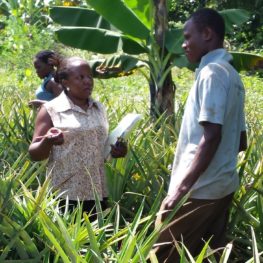IPPAE – International PhD Program for Agricultural Economics, Bioeconomy and Rural Development
This program is offered by Justus-Liebig-University Giessen and the University of Hohenheim
| Location | The Justus-Liebig-University was founded as one of the first universities in the German-speaking world. Justus-Liebig-University combines up-to-date research and teaching with the tradition of a university which is over 400 years old. Today, the university has about 28,000 students, about 10 per cent of whom belong to the faculty of Agriculture, Food Sciences and Environmental Management.
The University of Hohenheim, which was founded in 1818, is located outside the city of Stuttgart close to the airport. The main building is an old castle surrounded by large parks and two experimental farms. Short distances between all campus facilities make the orientation for new incoming students easy and allow a familiar atmosphere. Agriculture is a dominant faculty with a large number of international students, extensive curricula and a high proportion of PhD students. |
| Course focus | The IPPAE gathers PhD candidates from all over the world. The language of instruction is English, but the programme includes a German language crash course. Prior to the thesis research, candidates need to do course work for one semester.
Our era is one of wicked problems, characterized by strong interactions between environmental, social and economic dynamics and where values play an important role. Therefore, we warmly invite you to address in your PhD thesis key problems of rural development and to contribute to changing the course of the ecological and economic impoverishment taking place in many agricultural systems of the world. IPPAE aims to qualify candidates as researchers and teachers, who are then able to analyse complex and interdisciplinary problems and develop solutions for their countries in a systematic way. Today, most of the former IPPAE candidates are acting as multipliers of knowledge at universities or other institutions in their home countries. This objective is supported by the ongoing cooperation and continuing exchange activities that take place after completion of the programme in Giessen or Hohenheim. |
| Target group | Young scientists from developing countries and emerging economies with two years of professional experience. Applications are invited primarily from universities and national and international research institutions for staff development, but applications from M.Sc. degree holders already employed in government, administration, consultancies, international agencies and industry are also accepted. |
| Course language | English |
| Entry requirements |
|
| Degree Awarded | Dr. sc. agr. / (Ph.D.) |
| Course Begins | 1 June each year |
| Course Duration | In total 42 months
|
| Remarks | The final decision on the topic of the thesis is made jointly by the candidate and the supervisor. The research should fit into the overall research programme of the supervisor. The language of the courses and seminars as well as of publications, including the PhD thesis, is English. Proficiency in English is a precondition for writing the PhD thesis.
The IPPAE strives to develop cooperation between the Universities of Giessen and Hohenheim and with the institutions the PhD candidates are affiliated to. |
Prof. Dr. Ernst-August Nuppenau
Institut für Agrarpolitik und Marktforschung
Professur Agrar- und Umweltpolitik
Senckenbergstraße 3, D-35390 Giessen
Phone: +49 (0) 641 / 99-37033
Email: IPPAE-info@agrar.uni-giessen.de
Website: https://www.uni-giessen.de/fbz/fb09/institute/iam/pau/daad
Prof. Dr Regina Birner
Universität Hohenheim
Institut für Tropische Agrarwissenschaften, (Hans-Ruthenberg Institut)
Sozialer und institutioneller Wandel in der landwirtschaftlichen Entwicklung (490C)
70593 Stuttgart, Germany
Phone: +49(0)711-459-22514
Fax: +49(0)711-459-23812
Email: phd_daad@uni-hohenheim.de
Website: www.uni-hohenheim.de/490C

